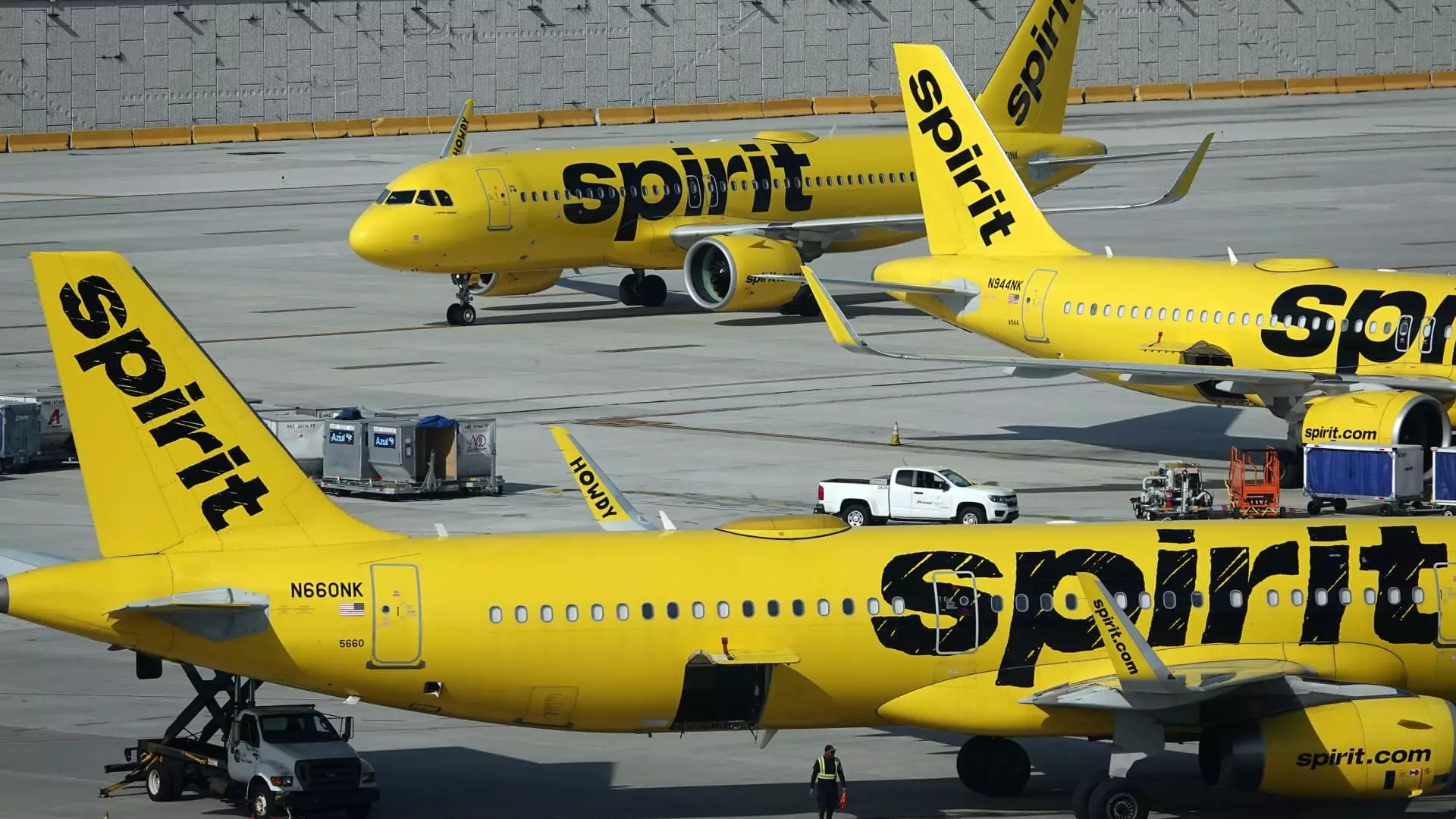Spirit Airlines has recently witnessed a notable surge in its stock value, with shares climbing 16% to close at $2.79, following the announcement of a significant restructuring plan. This surge, however, does not reflect an outright recovery but rather an acknowledgment from investors of the airline’s proactive measures to stabilize its financial situation. The budget carrier revealed plans to sell 23 older Airbus aircraft, a strategic move expected to generate approximately $519 million. This sale is integral to Spirit’s overarching strategy to reduce its operational costs by about $80 million, primarily through workforce reductions that hint at the precarious nature of the company’s current financial environment.
The pandemic has wreaked havoc on the airline industry, and Spirit has not been an exception. The airline is currently grappling with a paradigm shift in travel demand alongside operational setbacks, including grounded aircraft due to technical issues with Pratt & Whitney engines. While the recent stock price increase may lead some to perceive a turnaround, Spirit’s challenges remain daunting. The airline’s substantial decline in share price—over 80% within the year—indicates a struggle for survival following a failed merger with JetBlue Airways, which has left it vulnerable and in search of new strategic partnerships or alliances.
While specific information regarding employee layoffs has not been disclosed, the airline signaled a significant contraction in its workforce to facilitate cost savings. Already, approximately 200 pilots were furloughed in September, raising concerns about operational efficiency in the near term. The airline anticipates cutting its capacity for 2025 by the mid-teens percentage range compared to the current year, underscoring the depth of the restructuring efforts. While flight attendants may have a more stable position due to voluntary leaves, the overall vibe is one of uncertainty, reflecting the volatility still present in the airline sector.
In light of mounting challenges, rumors have surfaced about a possible revival of merger discussions between Spirit and Frontier Airlines. Reports earlier this week suggested renewed talks, adding a layer of intrigue to the budget airline landscape. However, it is important to note that previous merger attempts were derailed by competitive bids, notably from JetBlue, which adds a potential complication to any negotiations. The outcome of these talks could provide Spirit with a much-needed lifeline, enhancing operational synergies and opening avenues for recovery.
As the third quarter approaches, Spirit has forecasted an operating margin that could still be negative but is relatively better than earlier predictions. Initially anticipating a staggering negative margin of up to 29%, the airline revised its estimate to a negative 24.5%. Although this projection offers some assurance of minor improvement, it highlights the airline’s ongoing struggle to reach profitability amid significant external pressures. Overall, Spirit Airlines stands at a crossroads, where decisive actions—along with strategic industry partnerships—will be crucial for its sustainability in an increasingly competitive landscape.


Leave a Reply